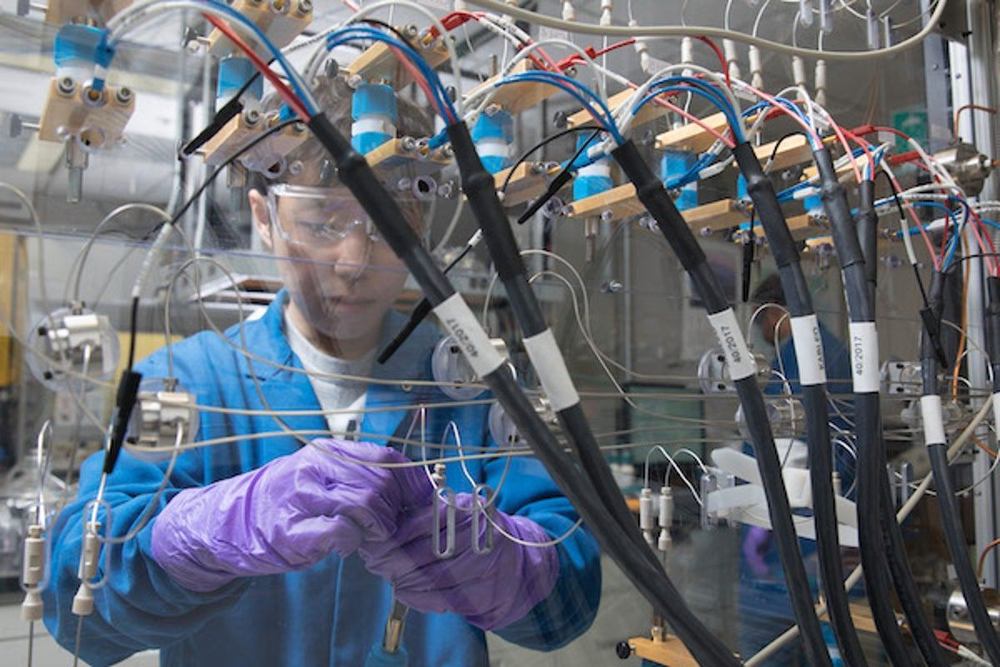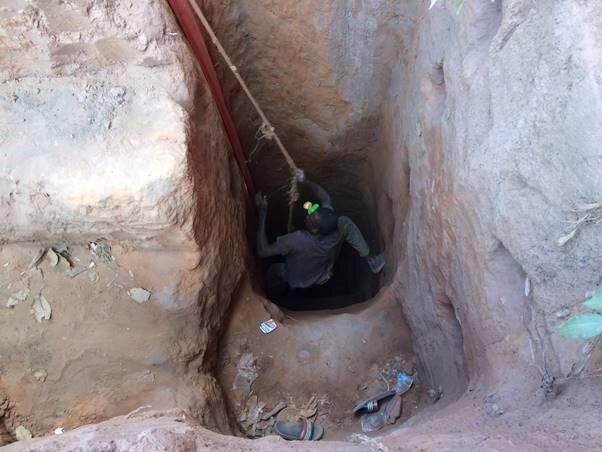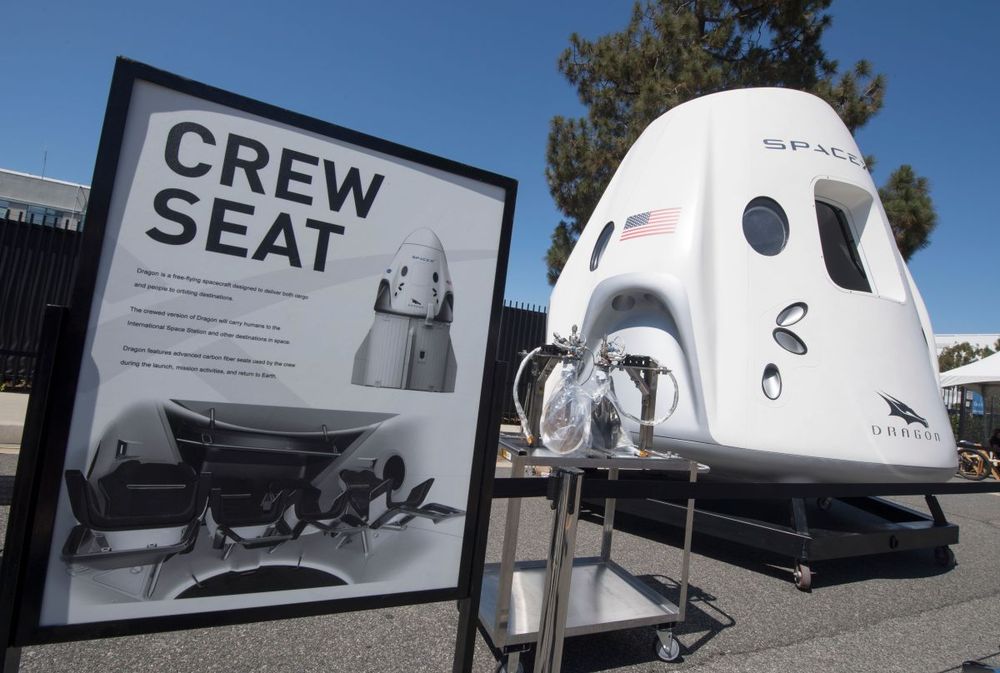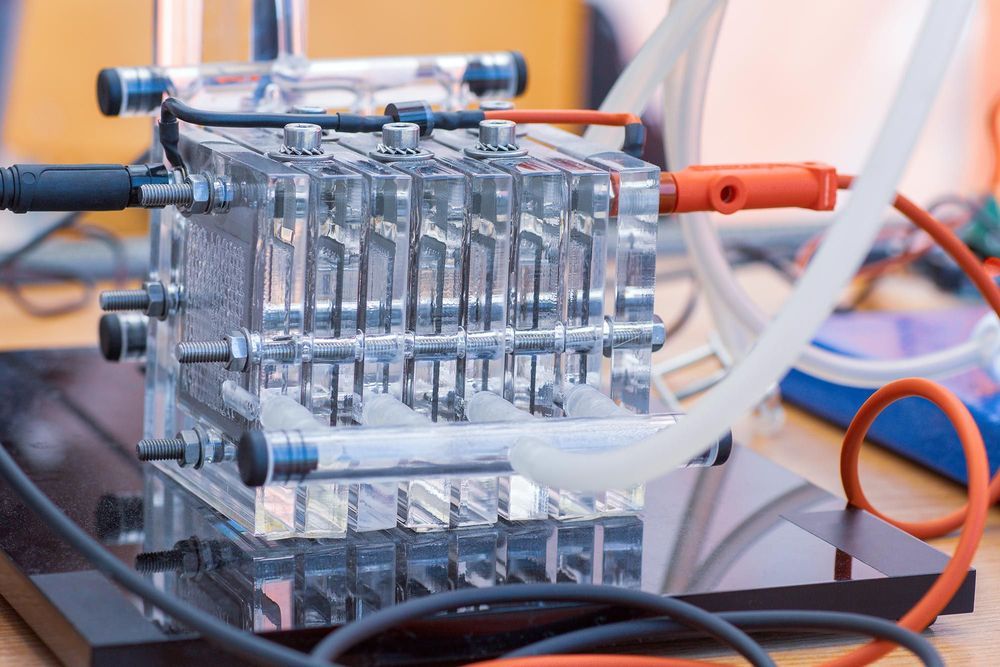Solar Foods has developed a sustainable food that’s totally disconnected from agriculture. Now they need to scale it up.



Combining Maxar’s capabilities in robotics, spacecraft and space systems operations creates the opportunity to deploy and maintain revolutionary new space architectures. Since the dawn of space exploration, pioneers in the field envisioned sustainable space stations enabled by in-space assembly, manufacturing and servicing. Wernher Von Braun conducted a detailed study in 1945 that defined the deployment and construction of the rotating wheel space station. The design included maintaining artificial gravity and oxygen levels. Today, NASA has led the construction and continuous operation of the International Space Station for over 20 years, demonstrating the technical feasibility of large-scale in-space assembly and servicing.
Recently, Maxar has been working with NASA on concepts for both human-tended and uncrewed sustainable space platforms. These in-space assembled structures provide basic functions and a modular interface for new and evolving payloads and missions. The lunar orbiting Gateway will be one such platform where the Maxar-developed Power and Propulsion Element will provide the foundation of power, maneuvering, communications systems and initial docking capabilities. Additional Gateway segments will plug-in to the Power and Propulsion Element to make use of these systems. The versatility of the Power and Propulsion Element also allows it to be refueled in orbit, and we are working with NASA to conceive the architecture that could resupply the Gateway with fuel and other essentials.
Another concept we’ve been developing with NASA is an uncrewed “science station” that is constructed in sun synchronous LEO orbit and features science instruments that are robotically installed, upgraded, and replaced over time. This allows for co-location of science instruments, which is often desired or necessary, while eliminating the need to budget for, develop, integrate and launch all the payloads simultaneously on a single launch.


IBM found a way to make a battery with materials from seawater instead of cobalt or nickel which are harmful to the environment, and it charges much faster.
Lithium-ion batteries are just as important as solar panels and wind turbines in our pursuit of sustainable energy. The use of lithium-ion technology is sustainable, however, its materials are not. When the battery has served its purpose, if it’s not disposed of correctly, it has a profoundly negative impact on the planet. Furthermore, the making of the batteries involves sourcing of heavy metals that are expensive and come at a substantial humanitarian and environmental cost.
In search of a better option, IBM found a way to make a battery that relies on materials from seawater instead. Testing revealed that the new battery is just as good as the one made with heavy metals, such as cobalt and nickel.
In retaliation to the unethical practice of how heavy metals are attained, as well as the damage these metals cause when they leak out into the environment, companies like IBM have taken a considerable interest in developing alternatives that don’t require the use of heavy metals.

Might interest some.
Think of a train coming down the tracks to a switch point where it could go either to the right or the left—and it always goes to the right.
Photosynthetic organisms have a similar switch point. After sunlight is absorbed, energy transfers rapidly to a protein called the reaction center. From this point, the electrons could move either to an A-branch (or “right-track”) set of molecules, or to a B-branch (“left-track”) set of identical molecules.
New research from Washington University in St. Louis and Argonne National Laboratory coaxes electrons down the track that they typically don’t travel—advancing understanding of the earliest light-driven events of photosynthesis. The findings were published Dec. 31 in the Proceedings of the National Academy of Sciences (PNAS).

The global low-carbon revolution could be at risk unless new international agreements and governance mechanisms are put in place to ensure a sustainable supply of rare minerals and metals, a new academic study has warned.
The amount of cobalt, copper, lithium, cadmium, and rare earth elements needed for solar photovoltaics, batteries, electric vehicle (EV) motors, wind turbines, fuel cells, and nuclear reactors will likely grow at a rapid pace in the upcoming years. Even if alternatives are found for one metal, there will be reliance on another as the scope of possibilities is inherently limited by physical and chemical properties of elements.
However, with global supplies often heavily monopolized by a single country, confronted by social and environmental conflict, or concentrated in poorly functioning markets, there is a real possibility that a shortage of minerals could hold back the urgent need for a rapid upscaling of low-carbon technologies. In some cases, markets are providing misleading signals to investors that can lead to poor decisions. In other cases, the countries or regions supplying minerals are politically unstable.

Elon Musk’s rocket company SpaceX is kicking off the new year with an ultra busy month of tests and missions, including a major test for the company’s first crewed mission to fly NASA astronauts to and back from the International Space Station (ISS).
To drum up hype ahead of the big day, Musk posted a simulated video on Monday showing how the eventual manned launch will look.
SEE ALSO: Why Nobel Prize-Winning Scientists Universally Oppose Moving to Mars.

Australian Research opens up new possibilities for hydrogen fuelled future.
Scientists show how using only water, iron, nickel and electricity can create hydrogen energy much more cheaply than before.
Hydrogen-powered cars may soon become more than just a novelty after a UNSW-led team of scientists demonstrated a much cheaper and sustainable way to create the hydrogen required to power them.
In research published in Nature Communications recently, scientists from UNSW Sydney, Griffith University and Swinburne University of Technology showed that capturing hydrogen by splitting it from oxygen in water can be achieved by using low-cost metals like iron and nickel as catalysts, which speed up this chemical reaction while requiring less energy.
Let’s be clear.
What can we trust? Why is the ‘information ecology’ so damaged, and what would it take to make it healthy?
This is a fundamental question, because without good sensemaking, we cannot even begin to act in the world. It is also a central concern in what many are calling the “meaning crisis”, because what is meaningful is connected to what is real.
Daniel Schmachtenberger is an evolutionary philosopher — his central interest is civilization design: developing new capacities for sense-making and choice-making, individually and collectively, to support conscious sustainable evolution.
To get access to more exclusive content and to join this evolving conversation, become a Rebel Wisdom member: https://www.rebelwisdom.co.uk/plans